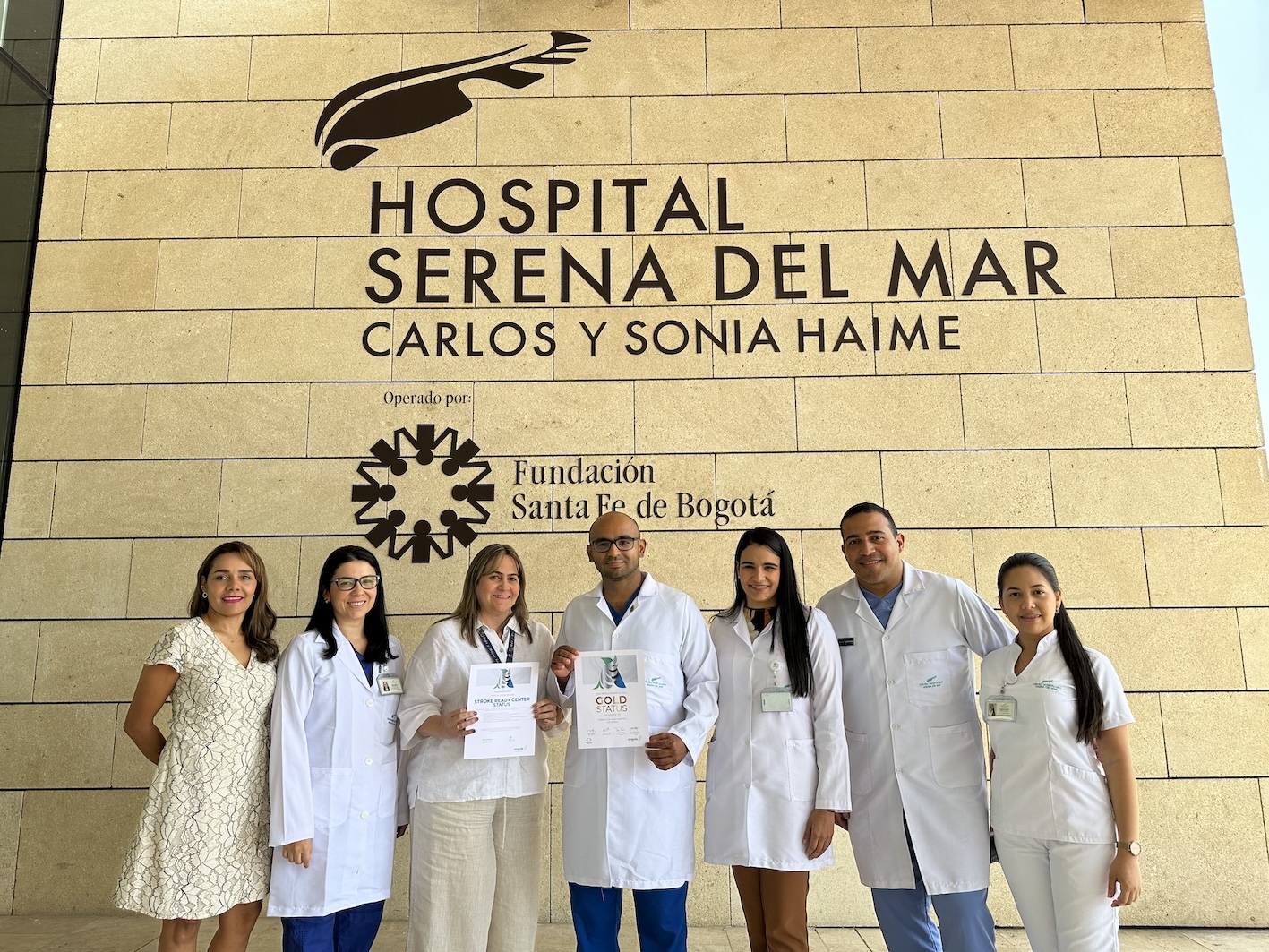
The Stroke Unit at Padua University Hospital is a semi-intensive care unit dedicated to the management and treatment of patients with acute cerebrovascular diseases. With only four monitored beds, it is the referral centre for the city of Padua (330.000 inhabitants) and its province (1 million inhabitants), located near Venice, in northeastern Italy.
In 2022, Padua University Hospital won its first ESO Angels diamond award, thanks to the implementation of several strategic changes including key priority actions identified by Angels.
This award acknowledges the efforts of all healthcare professionals involved in improving the extra- and intra-hospital management of cerebrovascular emergencies: the medical and nursing staff of the Stroke Unit, the doctors and residents of the Neurological Clinic, the “118” (i.e. the Italian Emergency Medical Service), the Emergency Department, Laboratory Medicine, as well as Radiology, Neuroradiology, and our Neurointensive Care Unit.
In June 2022, the diagnostic and therapeutic care pathway for the management of acute ischemic stroke was updated. The objective was to overcome the structural and organisational challenges of a large pavilion-style hospital that had been causing long treatment times for acute stroke patients, far from the international standards. The cornerstones of the new path, inaugurated in June 2022, were the immediate notification of the stroke code by the Italian EMS, the administration of thrombolytic treatment in the CT room close to the emergency, and the establishment of a quality-control monitoring system.

We have observed that prehospital notification by EMS personnel can mobilise the resources of the receiving hospital before patient arrival. In particular the vascular neurologist who coordinates the stroke team is now present in the “red area” of the emergency room upon patient arrival. This allows for a rapid clinical evaluation and immediate transport to the CT room, where intravenous thrombolysis is started when indicated. If advanced brain imaging identifies a patient eligible to mechanical thrombectomy, the vascular neurologist activates a direct transport to the angiography suite.
The establishment of a quality-control monitoring system, with daily checks of the temporal metrics and internal audits in case of poor performance, has made a great contribution to the identification of critical points in our stroke pathway and has led to an implementation of improved strategies.
The adoption of this new protocol has led to a significant increase in the number of patients undergoing urgent reperfusion, and has shortened the time between hospital arrival and brain CT (door-to-CT) and between hospital arrival and thrombolysis, i.e. door-to-needle (DTN) time. After just a few weeks, DTN time was down to 60 minutes and door-to-groin time was about 120 minutes. Then we improved even further, treating at least 50% of patients with thrombolysis within 45 minutes, and starting endovascular procedure within 90 minutes, thus achieving the optimal treatment standards required by the Angels Awards programme. But more important than the diamond status, the improvements have guaranteed a better service to our citizens.
In the next few months, in agreement with our Hospital Administrators, we will implement further steps that will surely benefit our patients, namely the acquisition of more specialised personnel (vascular neurologists) necessary to guarantee a 24/7 stroke on-call service, and the establishment of a New Stroke Unit with an adequate number of beds (12) for our catchment area.
It is our goal to maintain these results over time, so as to guarantee all patients the best treatment and the best possible outcomes.


